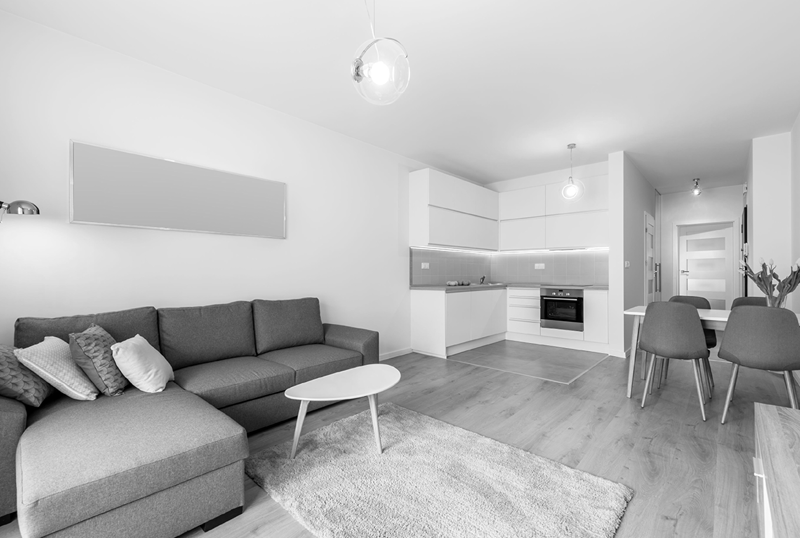Although they lack yards, buying an apartment or a unit has been long touted as a way to downsize your expenses to upsize your lifestyle – but what’s the catch?
Based on data sourced from the latest census, around 1.3 million people now live in an apartment in Australia. Interestingly, this is an increase of 1.1% when compared to the same period in 2016.
What the information doesn’t show is that a large portion of these people are believed to be renters. As the ‘Great Australian Dream’ of a quarter acre block in the suburbs complete with a hills hoist slowly fades away, land has been prioritised over the dwelling that sits on it, making standalone properties simply unaffordable for a growing number of Australians.
In turn, people choose to purchase an apartment to either live in as an owner occupier, or as an investment to rent out. With lower maintenance, cheaper price points and their general proximity to public transport and inner city lifestyle options, why aren’t more people buying apartments?
What To Consider Before Buying An Apartment
As a general rule, a unit, apartment or flat is significantly cheaper to purchase than a standalone house, which means a lower sale price and cheaper mortgage repayments. In contrast, one of the key downsides to consider is that without the land, apartments don’t usually see the same capital growth that houses do.
However, that doesn’t mean that buying an apartment is a bad idea for every individual or situation. When done well, they can provide a window of opportunity for a first home buyer to get a foot on the ladder, or for an older couple with an empty nest who are looking to downsize. Whatever your situation, there are things to weigh up to determine if purchasing an apartment is right for you.
Ongoing Costs – Council rates are usually higher on a house, and owners are required to pay land taxes on an ongoing basis. With a unit or apartment, owner occupiers and investors will have to account for quarterly strata fees for the lifetime of their investment, or the tenure of their property ownership. This also includes any special levies that may be raised along the way.
Required Maintenance – Unless you enlist outside help, all of the existing and potential maintenance issues are on you if you own a house, which can vary anywhere between mowing lawns to cleaning gutters. In comparison, one of the more attractive perks of owning a unit or apartment is that these responsibilities often fall under the umbrella of the body corporate.
Supply vs Demand – Property investment is a long game and not for those chasing liquid assets, so don’t just look at what’s being built – but also research what’s been approved. There may be an undersupply now, but if a planned community has been approved, that may mean an oversupply of units or houses in the future.
Consider Rentability – When comparing investment options between a house vs unit, consider what your future tenants might look like and if your property is a desirable option for them. Students may wish to be close to a university, while properties purchased for Airbnbs should both be somewhat unique, as well as being in a tourist friendly destination.
Your Long Term Goals – As a first time investor, purchasing a unit or apartment can be your ticket to being a property baron. However, it may not be the best fit if you have long term goals for eventually living there. As an investor, houses usually offer for negative gearing opportunities, and may command a higher capital growth price if and when you decide to sell.
While market conditions of course play a key role in determining a property’s profitability, don’t forget about the unique features that the property itself has to offer. Just one example of this is with some newer builds, townhouses can often have a bigger backyard than standard house plots, and provide somewhat of a happy medium.
Should you be looking to sell your home or purchase a new one, enlisting the services of a free property advisor like ESPA can often be a game changer. As an example, your advisor would likely research the property, local agents, check the zoning, evaluate market conditions, and communicate clearly with you regarding all of your options – but where do you find one?
Take The Stress Out Of Selling Property
As a completely free service, Emergency Services Property Advisors provide property advisor services to Police, Fire, Ambulance and S.E.S personnel and their families right across Victoria.
Luke and the team at ESPA are passionate about providing support to some of Australia’s most valued public servants. Along with key industry insights, ESPA also works with a broad range of service providers linked to the real estate industry such as conveyancers, trades, legal practitioners and mortgage brokers.
If you are an emergency services worker looking to potentially buy or sell property in the future, please get in touch with Emergency Services Property Advisors today to discuss how we can turn your real estate dreams into reality, or call Luke directly on 0414 757 705.

